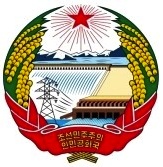 The death of North Korea’s Marshal Kim Jong Il, the Lodestar of the 21st century, was sudden but not unexpected. The Dear Leader, as he was usually called, suffered a stroke in 2008, and aged significantly after that.
The death of North Korea’s Marshal Kim Jong Il, the Lodestar of the 21st century, was sudden but not unexpected. The Dear Leader, as he was usually called, suffered a stroke in 2008, and aged significantly after that.
Soon after the stroke, Kim Jong Il began to prepare for his eventual demise. In 2010 his third son, 28-year-old Kim Jong Un, was made a four-star general and soon began to be featured by the official media as a young genius of leadership. Simultaneously, Kim Jong Il’s sister and her husband (both in their mid-60s), were promoted to top government positions—obviously on the assumption that they would act as regents for the young and inexperienced dictator should Kim Jong Il die soon.
These plans now have to be quickly executed. And, though it may be too early to say, it appears that these plans have not encountered much disturbance. The succession had not yet been formalized at the time of Kim Jong Il’s death, so, technically, Kim Jong Un was not his successor, but merely an unusually young general admired by the state media. Nonetheless, the first moves indicate that Kim Jong Un will succeed his father as intended.
Top North Korean generals and bureaucrats are busily professing their loyalty to the young man who was completely unknown less than two years ago. He was immediately made the supreme commander of the North Korean armed forces and has acquired the usual array of flowery titles.
This apparently trouble-free power transition once again confirms that the Pyongyang elite is united—otherwise, a challenge to an embarrassingly young and politically vulnerable successor would have emerged by now. This unity might be encouraging for those who hope for stability in North Korea. But it is also discouraging for those who hope for change.
The unity of the North Korean decision makers is not a product of any ideology. They have none: the much trumpeted Juche, or self-reliance, is just a set of platitudes, not taken seriously by anybody in a position of power. Loyalty to the Kim family might play a marginal role, but it seems that the major driving force behind their unity is insecurity. These people hang together because they know that otherwise they would be hanged separately. Unfortunately for them and for the outside world, this is by no means a paranoid fear.
The major source of their insecurity is the existence of successful and rich South Korea just across the border. The per capita income ratio between the two Korean states is about 1:15—well above the 1:3 ratio that once existed between East and West Germany. The success of South Korea creates an existential threat to the North Korean state.
The average North Korean is not supposed to know about the prosperity of the South. The populace is isolated from the outside world and lives under unprecedented levels of surveillance—even possession of a tunable radio is a crime in North Korea. The government reasons that if common North Koreans fully learn of the prosperity of the South and feel the weakness of the authorities in the North, they are likely to react as East Germans did by challenging and perhaps overthrowing the regime on the assumption that they would become part of the affluent South.
The People’s Republic of China does not have such a dangerously prosperous twin, and this is what made PRC market reforms possible. In North Korea, which faces a well-off and successful doppelganger, reforms or any kind of dramatic changes might be destabilizing. Thus Pyongyang’s decision makers do what they can to avoid rocking the boat.
The North Korean elite—including its relatively low strata—understand that in case of a regime collapse they are not likely to keep their positions of power. A middle-ranking bureaucrat or military officer in Egypt during the recent Tahir Square demonstrations believed that, Hosni Mubarak or not, he would still command his battalion or manage his bureau. His North Korean peer does not share this certainty: for him, regime collapse and absorption by South Korea might mean the loss of everything.
This fear of instability seems to be why Kim Jong Un has had so little trouble in assuming his father’s position. By virtue of being Marshal Kim’s son and Generalissimo Kim Il Sung’s grandson, he has some legitimacy in a country whose people are used to hereditary privileges and hereditary discrimination—and legitimacy is what the elite look for now.
They understand that an open challenge to Kim Jong Un would be destabilizing. Even if a contender succeeds he would find himself presiding over a disintegrating country.
Therefore, one might expect a relatively smooth transition. But, by the same token, this emphasis on stability and continuity will ensure that things will not change much in the Kim family’s realm. At least for the first years following Kim Jong Il’s death North Korea is likely to be run by the same people, and it will follow a political course that was charted by the late Marshal Kim—not least because this is the only course that will guarantee the security of their regime. This is hardly good news.




